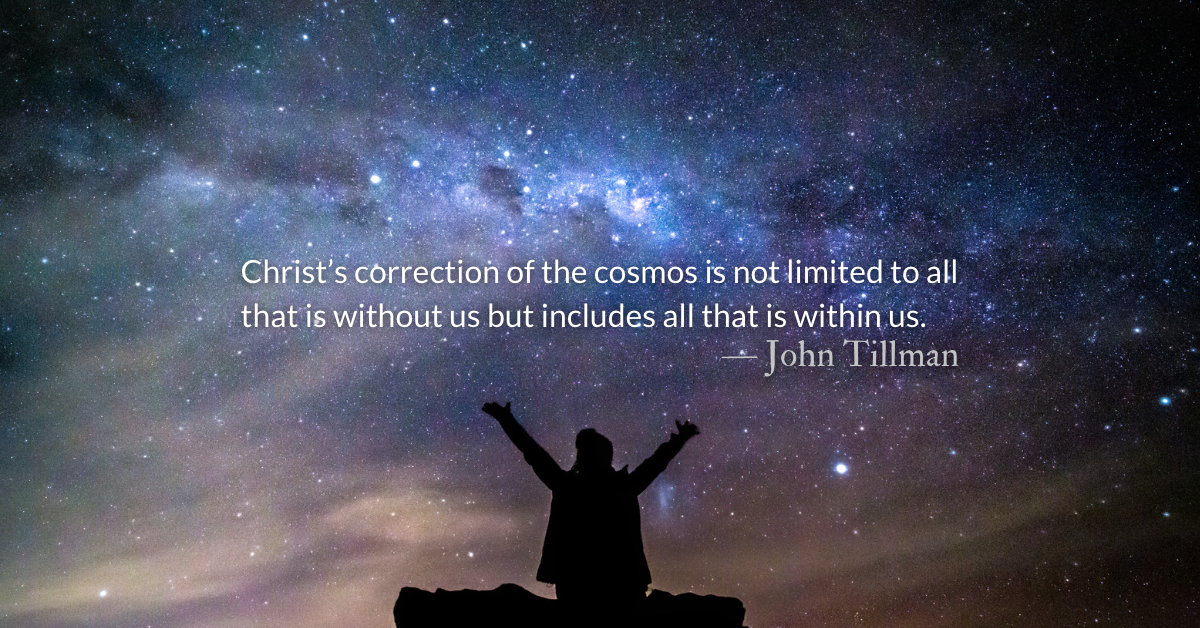Scripture Focus: Philippians 1.4-6
4 In all my prayers for all of you, I always pray with joy 5 because of your partnership in the gospel from the first day until now, 6 being confident of this, that he who began a good work in you will carry it on to completion until the day of Christ Jesus.
Reflection: Transformed by Koinonia
By John Tillman
The word Paul uses to describe the partnership that he feels with the Philippian church is koinonia. Like many Greek words, it has multiple shades of meaning. The word in English primarily refers to the “fellowship” of the church as a community. This meaning is not incorrect, but another interpretation is of being a business partner or having a “share” or investment together in a business.
Paul knows what it is to have partners in business, having supported himself at times through the skilled trade of tentmaking which he had in common with Priscilla and Aquila. However, the business to which Paul is referring, that we all have a share in, is the gospel.
The business of the gospel is the “putting right” of everything in the cosmos. And the means by which we do so is by “fellowship” or “partnership” with Christ Jesus, whose work continues until “the day of Christ Jesus.” There is no koinonia with Christ without change.
In this phrase, Paul is redefining the ancient Jewish concept of the “Day of the Lord.” This is the “last day” to which Martha refers when discussing her brother Lazarus’s future resurrection and is sometimes called the “eighth day” to symbolize that God is both ending and renewing creation.
This is a day when all will be put right. The day of Lord will be a day of leveling. It will mean tearing down those who have built themselves up and lifting up those who have been crushed. Earth will be transformed into another place—a place in keeping with all that God desires for us, but we are too foolish to ask for or seek.
Christ’s correction of the cosmos is not limited to all that is without us but includes all that is within us. It is not just Earth that will be transformed but Earthlings. We, each of us, have an inner cosmos that must succumb to a “Day of the Lord” transformation. Within us are exalted idols and habits that must be torn down. Within us are fruits of the spirit that we have trampled under selfish feet.
As we submit to him, Jesus will, with axe and fire, tear down in us what must burn, and with tender nourishing care will tend and cultivate the fruit that he always designed to grow in us. Christ is our partner and our koinonia with him means every trial, suffering, isolation, loss, and sadness, shall work together for our betterment, strengthening, and righteousness.
Divine Hours Prayer: A Reading
Jesus taught us, saying: “I am the true vine, and my Father is the vinedresser. Every branch in me that bears no fruit he cuts away, and every branch that does bear fruit he prunes to make it bear even more. You are pruned already, by means of the word that I have spoken to you.” — John 15.1-3
– From The Divine Hours: Prayers for Summertime by Phyllis Tickle.
Today’s Readings
Joshua 18-19 (Listen 9:59)
Philippians 1 (Listen 4:03)
Read more about Jesus with Axe and Fire
May we ask him regularly to cut down our idols. May he burn out of our souls impurity and selfish desires.
Read more about A Rebellion of Repentance
The repentance John describes is a rebellion more radical than violent insurrection.










